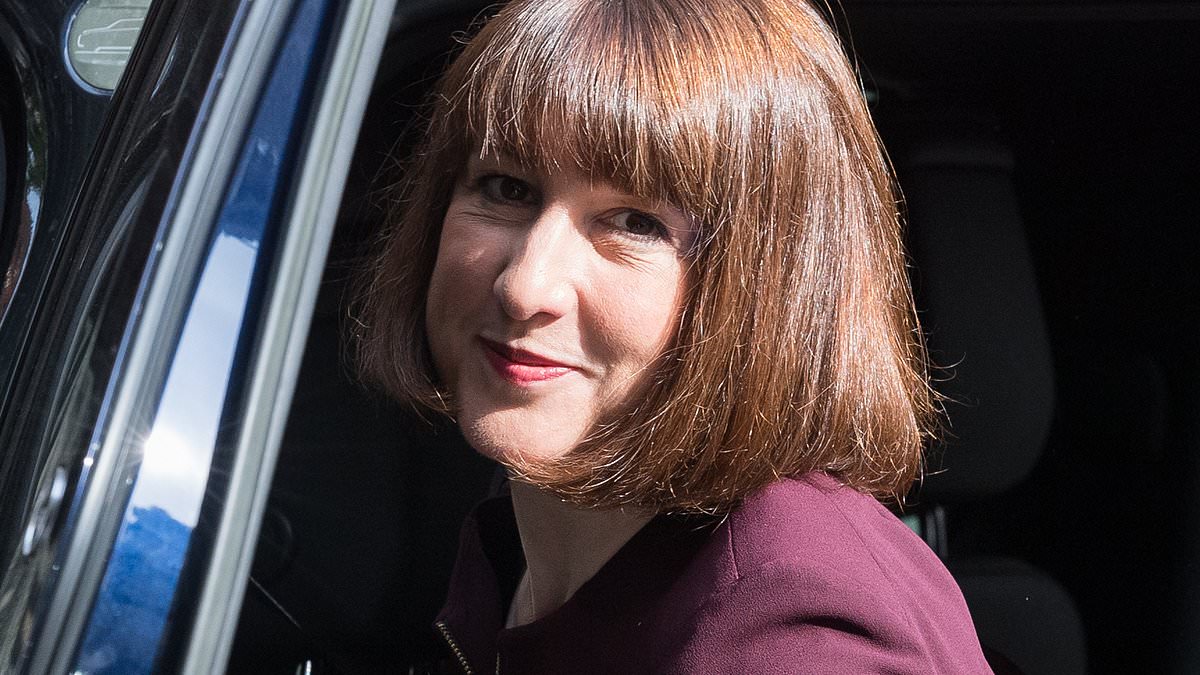Rachel Reeves faced fury today after she confirmed that taxes will rise at the Budget on October 30.
The Chancellor admitted that the burden on Brits will rise as she blamed the Tories for leaving a £22billion black hole in the government books.
Labour has not said what could be hiked – but inheritance tax, pensions reliefs and capital gains look likely targets as Ms Reeves looks to raise over £10billion.
Keir Starmer has ruled out increasing the main rates of income tax, national insurance or VAT.
Ms Reeves told the News Agents podcast: ‘I think that we will have to increase taxes in The Budget.’
Asked directly whether she could rule out cutting pension tax relief, she told LBC Radio: ‘I’m not going to write a budget on this programme, but the commitments we made in our manifesto not to increase National Insurance, VAT or income tax and also the triple lock, our commitments in our manifesto, stand.
‘We will stick by those. But there’ll be more difficult decisions to come in the Budget because of the inheritance that we now face.’
Shadow chancellor Jeremy Hunt said: ‘By refusing to take the difficult decisions needed, Rachel Reeves will do what she planned all along like every Labour Chancellor in history – raise your taxes.’
The Tories spent the election campaign warning that Labour would raise taxes and hammer pensioners.
The Chancellor’s review of the public finances suggests she needs to find more than £16billion to balance the books at the Budget on October 30.
It is unclear how much of that will come from tax rises.
Although Keir Starmer has pledged that the main rates of income tax, national insurance and VAT will not be increased, a variety of other options have been floated to close the gap.
There are disputes over how much– and how quickly – they can bring in revenues.
Manifesto – £2.5bn
VAT on private schools, a crackdown on non-doms and closing loopholes partly offset by spending commitments
Inheritance tax – £1bn
Raising the IHT rate from 40% to 45%.
Fuel duty – £4bn
Reversing the 5p cut in duty and restoring the inflation link
Capital gains – £16bn
Equalising the 28% top rate of capital gains with the 45% top tax rate
Pension reliefs – £2.7bn
Introducing 30% tax on pension contributions
On Monday Ms Reeves used the accusation about a funding black hole to effectively tear up Labour’s election platform – stripping winter fuel payments from 10million pensioners, ditching the long-awaited social care cap, and shelving major road projects.
Critics pointed out that nearly half of the alleged funding gap was down to Ms Reeves deciding to ‘cave in’ to union demands for public sector pay rises, with an eye-watering 22 per cent over two years for striking junior doctors and 5 per cent for many other workers.
However, the Treasury review revealed that even after the emergency action there is still a £16.4billion gulf in the books.
The Labour manifesto committed to scrapping non-dom status, adding VAT to private school fees and increasing stamp duty on buyers from abroad.
But that was offset by extra spending, with the party estimating they would bring in £2.5billion by 2028.
Another option to bring in cash could be inheritance tax.
The Treasury’s ‘ready reckoner’ indicates that increasing the headline IHT rate from 40 per cent to 45 per cent could drum up an extra £1billion.
Ms Reeves could come under pressure to clobber more than 30million drivers to help plug the gap, potentially by allowing the 5p fuel duty cut to expire next March.
The reduction was introduced in March 2022 by then-Chancellor Rishi Sunak to ease the cost-of-living burden on families amid soaring oil prices.
But prices at the petrol pumps have since fallen significantly, and Ms Reeves could look at restoring the link between duty and inflation for future years.
The previous Tory government froze the Fuel Duty Escalator for 14 years, meaning the levy remained 57.95p a litre between 2011 and 2022 and has been 52.95p since the 5p cut.
Analysis shows the successive freezes have been worth at least £80billion to drivers collectively.
Reversing the 5p cut and allowing the Escalator to rise with inflation would add about £100 to the annual fuel bill of the average driver, of which there are around 33million in the UK.
It could net the Treasury as much £4billion extra a year in tax receipts.
Officials have also drawn up plans to equalise the 28 per cent top rate of capital gains tax with the 45 per cent top rate of income tax – which some believe could net the Exchequer a huge £16billion a year.
One other frequently mooted change would be to downgrade relief on pensions savings for up to 6million higher earners.
